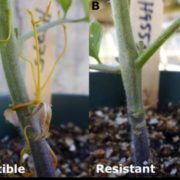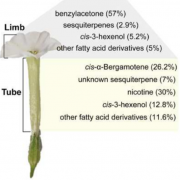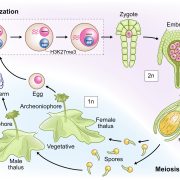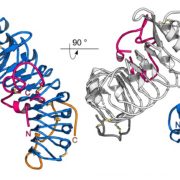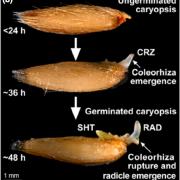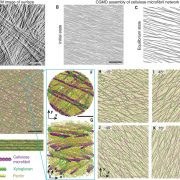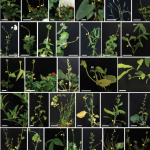Slow development restores the fertility of photoperiod-sensitive male-sterile plant lines (Plant Physiol.)
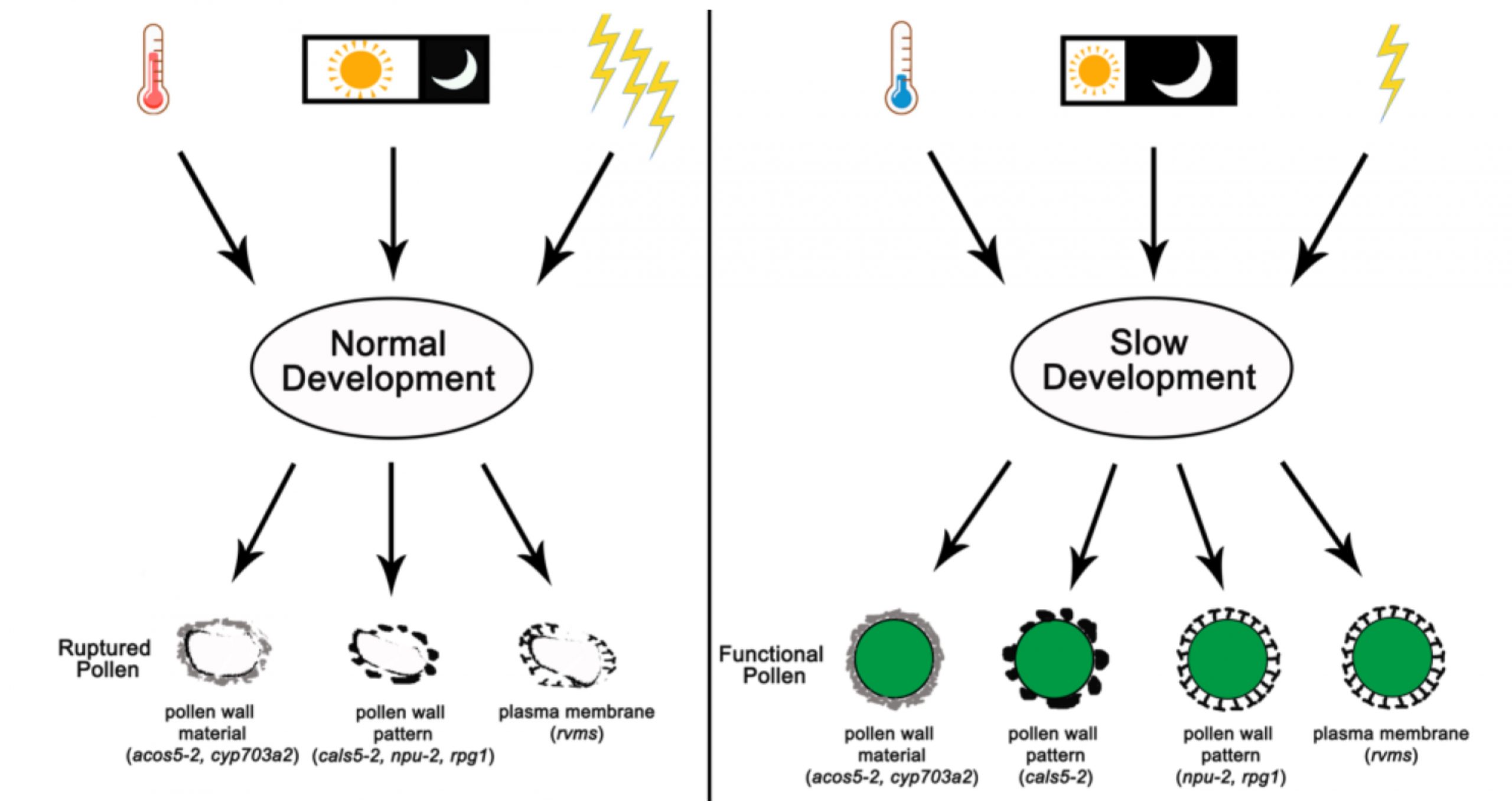 There are many well-known advantages to hybrid seeds. However, one obstacle is the tendency of some plants to self-pollinate. The development of genetically male-sterile lines greatly facilitates hybrid seed production, as the maternal male-sterile plant cannot self-fertilize and depends on donor pollen to set seed. Of course, this raises the question of how these lines are propagated, and one convenient solution is the development of conditional male sterility. Zhang, Xu, Ren et al. investigated a thermo-sensitive conditionally male-sterile Arabidopsis mutant, cals5-2, that has fertility restored at cold temperatures. Interestingly, they found that this mutant is also fertile in short-day or low-light conditions, and that for it and several other temperature-sensitive male-sterile mutants, slowing down the growth rate can overcome the male sterility. Developing pollen cells secrete a complex, multilayer wall, which is abnormal in several of these conditionally sterile mutants. Slow growth restores the fertility of these lines, even with their wall abnormalities. (Summary by Mary Williams @PlantTeaching) Plant Physiol. 10.1104/pp.20.00951
There are many well-known advantages to hybrid seeds. However, one obstacle is the tendency of some plants to self-pollinate. The development of genetically male-sterile lines greatly facilitates hybrid seed production, as the maternal male-sterile plant cannot self-fertilize and depends on donor pollen to set seed. Of course, this raises the question of how these lines are propagated, and one convenient solution is the development of conditional male sterility. Zhang, Xu, Ren et al. investigated a thermo-sensitive conditionally male-sterile Arabidopsis mutant, cals5-2, that has fertility restored at cold temperatures. Interestingly, they found that this mutant is also fertile in short-day or low-light conditions, and that for it and several other temperature-sensitive male-sterile mutants, slowing down the growth rate can overcome the male sterility. Developing pollen cells secrete a complex, multilayer wall, which is abnormal in several of these conditionally sterile mutants. Slow growth restores the fertility of these lines, even with their wall abnormalities. (Summary by Mary Williams @PlantTeaching) Plant Physiol. 10.1104/pp.20.00951


